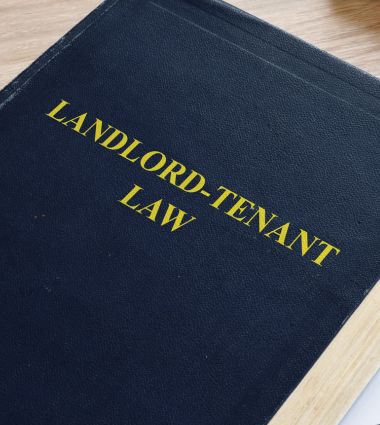Everything You Need to Know About Title Transfer
When buying or selling property in Canada, transferring legal title is an important step. Understanding the title transfer process empowers you to protect your interests during this transaction. This article provides a comprehensive overview of title transfers in Canada, walking you through key concepts, steps, and best practices.
Whether you are a first-time homebuyer, real estate investor, or industry professional. Learn what title insurance is, when to get a land survey, how to avoid title fraud and more. With the insights here, you can approach your next Canadian real estate title transfer reassured that you have the information required for a smooth process from start to finish.
What Is A Property Title?
A property title refers to the legal documentation that establishes ownership of real estate. In Canada, land titles are registered with the land title office in each province and territory. The property title provides specifics about the land, such as a legal description, the owner’s name and details about any limitations or charges against the property.
Transferring Property Title
When purchasing or selling real estate, the property title must be transferred to reflect the change in ownership. This is known as conveyancing and is handled by a real estate lawyer or notary in most provinces. They will conduct searches to ensure no outstanding issues with the property and prepare the documents to transfer the title to the new owner legally.
The required documentation varies in each province but typically includes a transfer or deed of land, statement of adjustments, and property tax certificate. The lawyer will register the transfer documents with the land title office to officially change the name on the property title. Transferring property title provides the new owner with legal proof of ownership of the real estate.
Types Of Title
Understanding title types is key in real estate transactions, as they define ownership rights and responsibilities for properties.

Freehold Title
Freehold title refers to land ownership, where the owner holds the title indefinitely. The freehold owner has full control and usage of the property. They can occupy, rent, sell, mortgage, or pass on the property as they wish. Freehold title is the most common and strongest form of ownership in Canada.
Leasehold Ownership
Leasehold ownership grants temporary land rights for a fixed period, as outlined in a lease agreement. The leaseholder pays rent to the freeholder and must follow the terms set out in the lease. Lease periods typically range from 30 to 99 years. At the end of the lease term, ownership reverts to the freeholder unless the lease is renewed. Leasehold ownership is common for apartments, commercial property, and land.
Life Estate Ownership
A life estate gives ownership rights to an individual for their lifetime. The life tenant can use and occupy the property during their lifetime but cannot sell or mortgage it. Ownership automatically transfers to the remainder person, typically the life tenant’s heirs, upon the life tenant’s death. Life estates allow owners to occupy and control property during their lifetime while designating an heir to receive the property.
The three main types of title for real property in Canada are freehold, leasehold, and life estate. The appropriate title depends on an owner’s needs and intentions for the property. Consulting legal professionals regarding title options and implications is always advisable.
What Is Title Transfer?
Title transfer refers to the legal process of changing the ownership of real property from one party to another. When purchasing or selling real estate in Canada, both the buyer and the seller must sign a deed to transfer the legal title. The deed is an official document that transfers ownership of the property from the seller to the new owner.
Recording the Deed
Once the deed is signed by both parties, it must be recorded with the local land records office to make the transfer of ownership official. The recording of the deed protects the new owner by providing a public record of the transfer of ownership. Failure to properly record a deed could result in legal issues regarding ownership of the property.
To complete a title transfer, several documents in addition to the deed are typically required, such as property tax certificates, lien waivers, and in some cases, a lawyer's certification of title. The specific documents needed depend on the location and type of property being transferred.
A title transfer, also known as conveyancing, refers to the legal process of transferring ownership and the bundle of rights associated with real property to another party. Following the proper procedures to record and register the transfer helps establish a clear chain of title to the new owner.
Your Rights As A Title Owner
Once the title of the property has been transferred to your name, you have certain rights and responsibilities as the legal owner.

Exclusive Use
As the titleholder, you have the exclusive right to use, occupy and enjoy the property. You can restrict access to the property and determine how the land and any improvements are used. For example, you can decide whether to rent or lease the property to generate income.
Disposition
You also have the right to sell, gift or otherwise dispose of your interest in the property as you see fit, subject to any existing limitations like mortgages. When you dispose of the title, the new owner acquires the same rights and responsibilities that you held.
Duty to Maintain
Along with your rights come certain duties, such as the responsibility to properly maintain the property and pay any taxes or fees associated with ownership like property taxes. Failure to fulfil these duties can put your ownership rights in jeopardy.
Make sure you understand both the entitlements and responsibilities that come with holding legal title to real estate. Exercise your rights responsibly and dutifully carry out your responsibilities as an owner to protect your investment. Seeking legal counsel regarding any questions about your specific situation is always advisable.
Role of Real Estate Lawyers in Title Transfer
Real estate lawyers play a central role in facilitating the smooth transfer of property titles.
Verifying Ownership
As a buyer, you will want to verify that the seller legally owns the property before purchase. Real estate lawyers examine the chain of title to ensure there are no charges, unpaid mortgages, easements or other limitations on the title that could jeopardize your ownership rights. They review relevant legal documents like survey plans, property deeds, and land titles to validate the seller’s claim to the property.
Preparing Legal Documents
Lawyers prepare, review and register necessary legal documents to facilitate the transfer of title. This includes the agreement of purchase and sale, statement of adjustments, and property title document. They ensure these documents meet all legal requirements to properly convey ownership from seller to buyer. Lawyers also handle the registration of new title documents with the land titles office on behalf of the buyer.
Providing Legal Advice
Real estate lawyers advise buyers on their legal rights and obligations regarding the property transaction. They explain all terms and conditions outlined in the purchase agreement and other documents. Lawyers also inform buyers of any risks or liabilities associated with the purchase so they enter the transaction with a full understanding of the legal implications. Their legal counsel helps to protect the buyer’s interests during the title transfer process.
Real estate lawyers play an integral role in title transfer by verifying the seller’s ownership, preparing and registering necessary legal documents, and providing key legal advice to the buyer. Their legal expertise helps to facilitate a smooth transfer of property title between parties.
Conclusion
Title transfer of your property or real estate in Canada is an important process that requires careful attention and understanding. By learning about the key steps, documents, and regulations involved, you can ensure your title transfer goes smoothly. With the right preparation and knowledge, the title transfer process does not have to be overly complex or stressful.
Equip yourself with a full understanding of what to expect, what documents you’ll need, and what legal obligations you must fulfil. Pay close attention to details and work actively with professionals like lawyers and notaries to tie up any loose ends. Approach your title transfer carefully but with confidence, knowing you have all the information you need to complete this significant transaction successfully.
Real Estate
Family Law
Wills & Estates
Immigration
Join Our Mailing List.
Sign up with your email to receive our newsletter and stay informed about the latest legal developments and special offers.






















































































